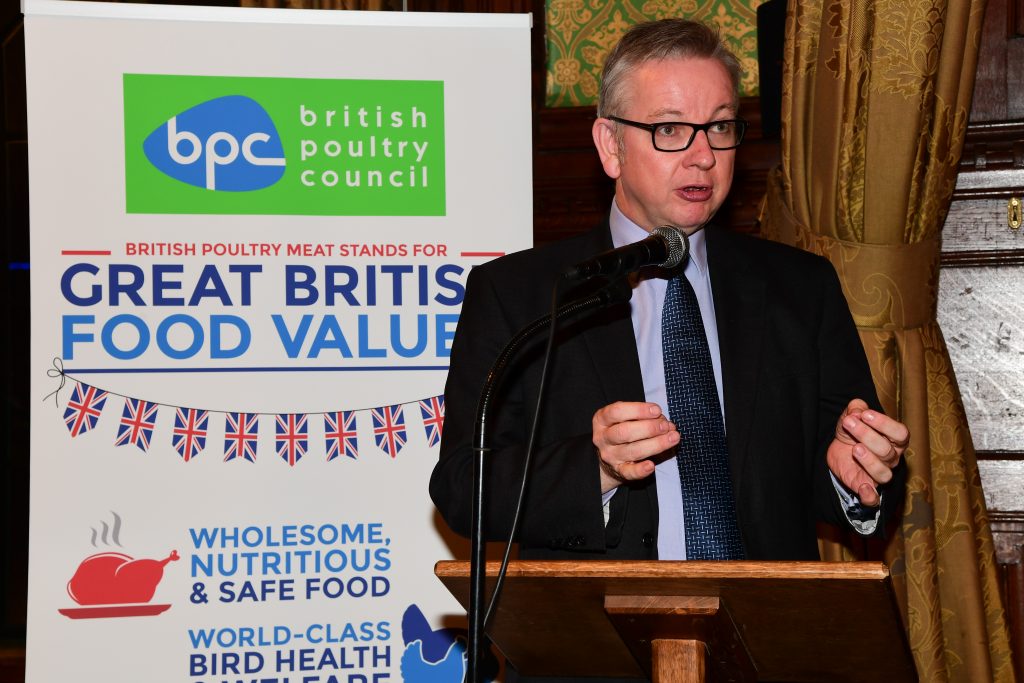National Farmers’ Union Scotland meets Defra Ministers
The National Farmers’ Union (NFU) Scotland returned to London to hold meetings with Defra Ministers, as Brexit negotiators headed over to Brussels in hope of entering ‘phase 2’ of negotiations.
NFU Scotland’s vice president, Martin Kennedy, joined director of policy, Jonnie Hall, and political affairs manager, Clare Slipper, in Westminster to meet with Agriculture Minister, George Eustice MP, Secretary of State for Environment Food and Rural Affairs, Michael Gove MP, and Parliamentary Under Secretary of State for Scotland, Lord Ian Duncan, in meetings facilitated by the Scottish Conservative group of MPs.

Michael Gove met with NFU Scotland.
With a strong focus on the Government’s soon-to-be-published White Paper on a future Agriculture Bill, NFU Scotland used the meetings to focus on what it described as “the vital need to ensure flexibility in any future UK agricultural framework”.
NFU Scotland highlighted that it is a “necessity to enable the devolved governments to develop and implement distinct policies for the different agricultural profiles of the UK, not least Scotland’s specific farming and crofting challenges”.
Speaking from Westminster, vice president, Martin Kennedy, commented: “Today’s meetings with Defra ministers were critical as the Brexit negotiations make an important progression to the next stage.
“Our efforts to hold monthly meetings in London with MPs from all parties are vital if Scottish agriculture is to secure the best possible outcomes. And we will continue to work with key departments to ensure these outcomes.
Kennedy noted that the “strong focus” of the meetings was to press again the need for an “adequately funded agriculture policy once we leave the EU that contains significant latitude for the Scottish Government to implement measures in the most effective way to meet Scottish agriculture’s needs”.
He added: “It is vital that Scotland has the option to support the likes of Scotland’s Less Favoured Areas and use measures such as coupled support where necessary.
These are likely to remain vital funding streams for many Scottish agricultural businesses, and it is important they are retained as we also develop a suite of new, forward-looking policies to enhance productivity and environmental benefits.
Highlighting that Scottish farmers and crofters are “up for the challenge of change ahead” he cautioned that “we have always warned governments that they will only be able to deliver if they are supported not only by the right policy framework but also by future trade agreements which retain unfettered and barrier-free access to European markets”.
“Access to both seasonal and permanent non-UK labour is also essential,” he stated.

 Kalsec expands lab capabilities in Europe
Kalsec expands lab capabilities in Europe Moy Park makes senior leadership appointment
Moy Park makes senior leadership appointment
